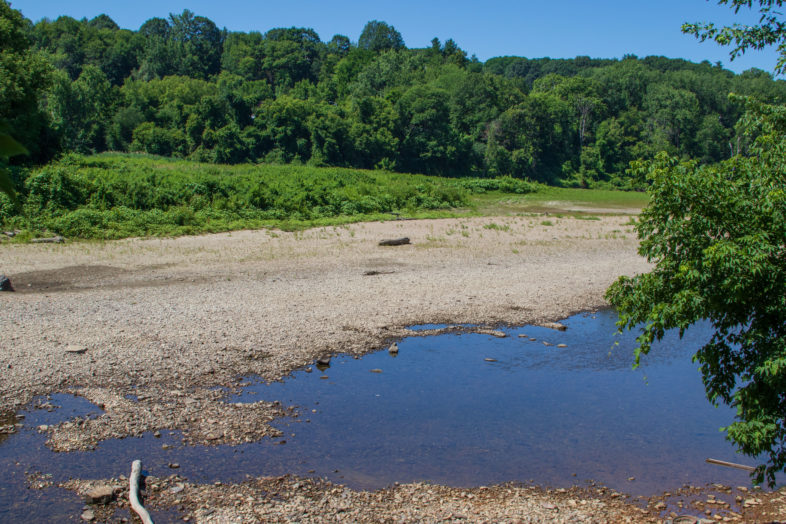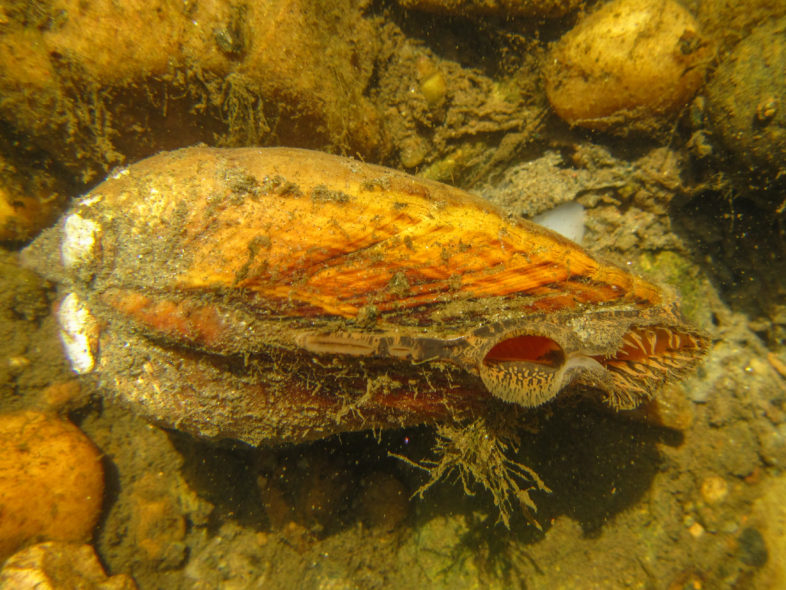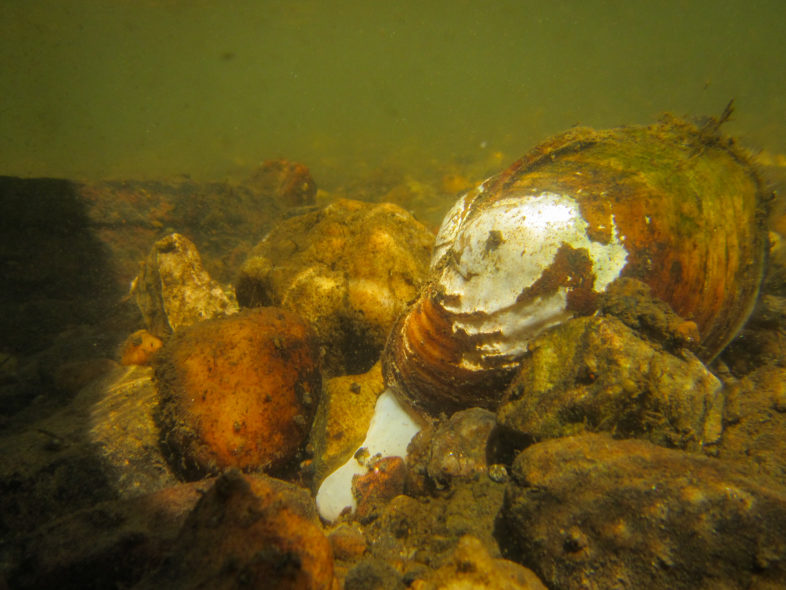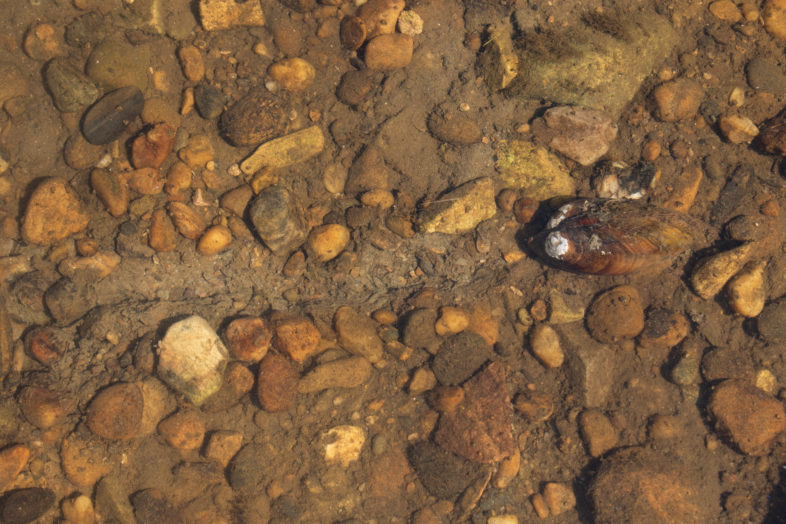Freshwater mussels are recognized as the most endangered group of aquatic organisms in North America, a hotspot for world mussel diversity, with over two-thirds of species considered extinct, endangered, or in need of special protection. In Vermont 10 of the 18 native species are listed under the state endangered species law, and several others are considered rare. One species, the Dwarf Wedgemussel, is listed as federally endangered. In Vermont only five native species are not considered to be in conservation need.
In this month’s episode of Outdoor Radio, biologists Kent McFarland and Sara Zahendra join Mark Ferguson from the Vermont Fish & Wildlife Department along the river in downtown Winooski to search for freshwater mussels and learn about their natural history and conservation plight.

Mark Ferguson from the Vermont Fish & Wildlife Dept. searching for freshwater mussels in the shallows with Sara Zahendra. / © K.P. McFarland
When first learning about freshwater mussels, people often ask – are there more than one kind? Many assume that every ‘clam-like’ creature in fresh water belongs to a single species. Most likely they have only encountered the Eastern Elliptio, a common and widespread species. This misperception often leads people to think that mussels are everywhere and abundant, when in reality, they are among the most endangered aquatic organisms. The loss and decline of freshwater mussels is a symptom of the overall degradation of freshwater ecosystems.
Freshwater mussels need clean water and healthy fish assemblages. Vermont’s native mussels are threatened by habitat loss, alteration, and fragmentation from bridge construction, riverbank stabilization, and dams, which have been responsible for dramatic losses of habitat. Bank erosion and storm water runoff can cover mussel beds in sedimentation. The introduced and invasive Zebra Mussel is decimating Lake Champlain mussel populations and the exotic and invasive Asiatic Clams are now found near Vermont. Mussels have been shown to be sensitive to a variety of pesticides and other chemicals. Wastewater effluents, stormwater, and agricultural runoff can carry pollutants into rivers and effect mussel health.
The health of freshwater mussel populations are an indicator of the quality and status of our waterways. Despite the high conservation concern for many of these mussels and their habitats, in August the representative from 4th Congressional District in Indiana introduced a bill titled: “To amend the Endangered Species Act of 1973 to remove freshwater mussels from the list of endangered and threatened species.” If this were to become law, it would be a blow to decades of conservation progress for these species and ultimately for our waterways.
Listen to the show
Learn more
- Explore the Vermont Freshwater Mussel Atlas at the Vermont Atlas of Life and add your observations too.
- Watch an episode of the Vermont PBS Outdoor Journal – Vermont’s Native Mussels.
- Learn about New Hampshire’s freshwater mussels.
- Learn more about the invasive Zebra Mussels from the Vermont Fish & Wildlife Department.
Video and Images from the Show
An underwater video of a Pocketbook filter feeding. / © K.P. McFarland

With the water low, it was easy to find mussels filter feeding in the shallow area here. Low water and hot temperatures can stress them easily though. / © K.P. McFarland
Outdoor Radio is produced in collaboration with Vermont Public Radio.




thank you Kent
great photos of subjects that hard to photograph.
peter
Thanks Peter!